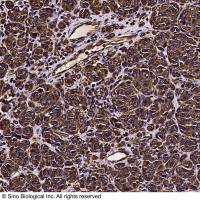Improving the Sensitivity of the ELISPOT Analyses of Antigen-Specific Cellular Immune Responses in Rhesus Macaques
互联网
互联网
相关产品推荐

Vimentin Antibody, Rabbit PAb, Antigen Affinity Purified | Vimentin 兔多抗 (抗原亲和纯化)
¥1699

Mouse IL-4 ELISpot Kit (ALP) (Strips)
¥2750

MYH9/MYH9蛋白Recombinant Human Myosin-9 (MYH9)重组蛋白Cellular myosin heavy chain, type AMyosin heavy chain 9Myosin heavy chain, non-muscle IIaNon-muscle myosin heavy chain A ;NMMHC-ANon-muscle myosin heavy chain IIa ;NMMHC II-a ;NMMHC-IIA蛋白
¥1344

CD16/FCGR3/Fc gamma RIII重组蛋白|Recombinant Rhesus CD16 / FCGR3 Protein (His & AVI Tag), Biotinylated
¥2980

FCRL4/FCRL4蛋白Recombinant Human Fc receptor-like protein 4 (FCRL4)重组蛋白Fc receptor homolog 4 Short name: FcRH4 IFGP family protein 2 Short name: hIFGP2 Immune receptor translocation-associated protein 1 CD_antigen: CD307d蛋白
¥1836
相关问答

